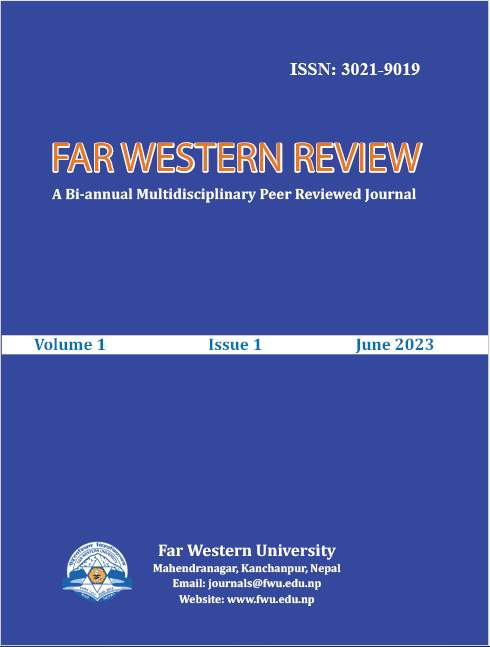Deudā: A Verbal Art of the Subaltern
DOI:
https://doi.org/10.3126/fwr.v1i1.58333Keywords:
Deudā, folklore, subaltern, lower echelons, protest, discrimination, hegemonyAbstract
Folk songs express the felt experiences and feelings of the common mass and seek to re-envision the traditions and practices of society. Deudā, in particular, is a folk poetic song popular in the Sudurpaschim and Karnali regions. The present research on Deudā songs holds special promise as it opens up avenues to look into folk traditions, practices, and social standings. Delving into Antonio Gramsci, Gayatri Chakravorty Spivak, and Ranajit Guha’s ideas of the subaltern, this study analyzes social association and representation by touching upon the subaltern consciousness in Deudā. It attempts to make an assessment of Deudā as the art of the humble people from the lower strata of life who create it to express their emotions and subaltern consciousness. The researcher has used interviews, focus group discussions, and observation as data collection techniques in this qualitative research. The main purpose of this study is to examine the voices of people from the margins, such as peasants, poor, women, and unprivileged caste groups belonging to the lower echelons of the communities, who express their felt experiences of life and break their silent marginal borders through Deudā songs. The findings of this research show that the Deudā songs convey the throbbing hearts of the subaltern people of the region with their emotions of pain, pathos, suffering, misery, hardships, compassion, fury or anger, silent protest, and rebellion
Downloads
Downloads
Published
How to Cite
Issue
Section
License
Copyright (c) 2023 Narendra Bahadur Air

This work is licensed under a Creative Commons Attribution-NonCommercial 4.0 International License.
CC BY-NC: This license allows reusers to distribute, remix, adapt, and build upon the material in any medium or format for noncommercial purposes only, and only so long as attribution is given to the creator.




